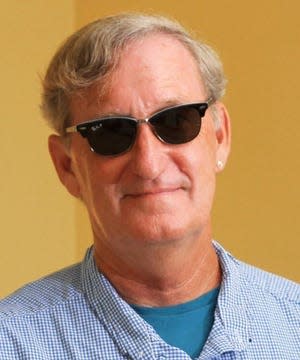Though omicron continues to spread, we're not back to zero

As the summer reached the midpoint, it seemed very much as though the pandemic was also on the way out.
The delta variant had hit hard, with cases rising at a nerve-wracking velocity, but it seemed to be fading. One of the aspects of delta that was clear from the start was that the delta variant induced very few break-through cases of COVID. People who were vaccinated (even those in the first stages of the vaccination process) were pretty well protected. Articles hit print celebrating the “end of the pandemic.” The president talked about a “summer of freedom” (and a massive party for the 4th of July), the CDC relaxed almost all of their restrictions and made way for states to do the same.
We had had two years of COVID by summer of 2021. When COVID first appeared, we had no idea what the thing was, or how to react or prevent the spread. The disagreements were honest ones – how to deal with the unknown threat? We started with simple things: wash your hands, wash your touch-surfaces. Wear a mask, in case it is airborne – when we started we did not even know how it was spread (I spent six months washing my grocery packaging!). Stay away from other people if they might have it – and especially if you might have it. An infrastructure was slowly created, of masks, ventilators, experimental drugs, and medical protocols.
But we did know it was a virus, and viruses meant vaccines, and the then president invested heavily in the research and development of these and put his legacy on the line to get them - and it paid off, even if it did not do so in time to give him another term. As the vaccinations began to take hold, the spread lessened. Even a new variant – delta – was turned back, though with some tragic breakthrough cases and it dumped us into the summer of 2021.
But across several oceans and a hemisphere away, a new variant was just hitting the streets – developing in South Africa, it erupted. This variant is simply the antithesis of delta and is related directly to the variants that came before it, but with an ugly twist - it seems to dodge the vaccine and is amazingly more contagious. And here we are again. But we’re not. We’re NOT back to zero – we are not at the starting point.
Remember, again, the apocalyptic visions of the spring of 2020? The weird fact is that we are beginning to get the edge on this malignant foe - we’re confused by it, even the CDC has issued many (sometimes conflicting) notes on omicron that seem to change daily. But we do know what we’re dealing with in the larger sense.
We’re calmer about it. Dealing with the frustration of having another variant at our doorstep is taking its toll, of course, but it’s not as though we have not been here before, or that science has not been here before. This is not uncharted territory. Although the vaccines are not as effective against omicron as they were against delta, early data suggests that there is a clear avoidance of real severity in people who have been even partially vaccinated.
If we are being left to our own devices with this one – our own knowledge and experience can serve us well, even if you are among the people that choose against vaccination. There are baseline things that we know work: masks, handwashing, limiting interpersonal contact. There are things we no longer find serve us at all. Washing groceries was just as silly as it seemed, but who knew? Well, now we do.
History is a great teacher. We’ve made it this far, and we’ll make it through this. And, even after the pandemic is the stuff of ancient legend, you’ll still need to wash your hands.
R. Bruce Anderson is the Dr. Sarah D. and L. Kirk McKay, Jr. Endowed Chair in American History, Government, and Civics and Miller Distinguished Professor of Political Science at Florida Southern College. He is also a columnist for The Ledger and political consultant and on-air commentator for WLKF Radio.
This article originally appeared on The Ledger: Though omicron continues to spread, we're not back to zero
